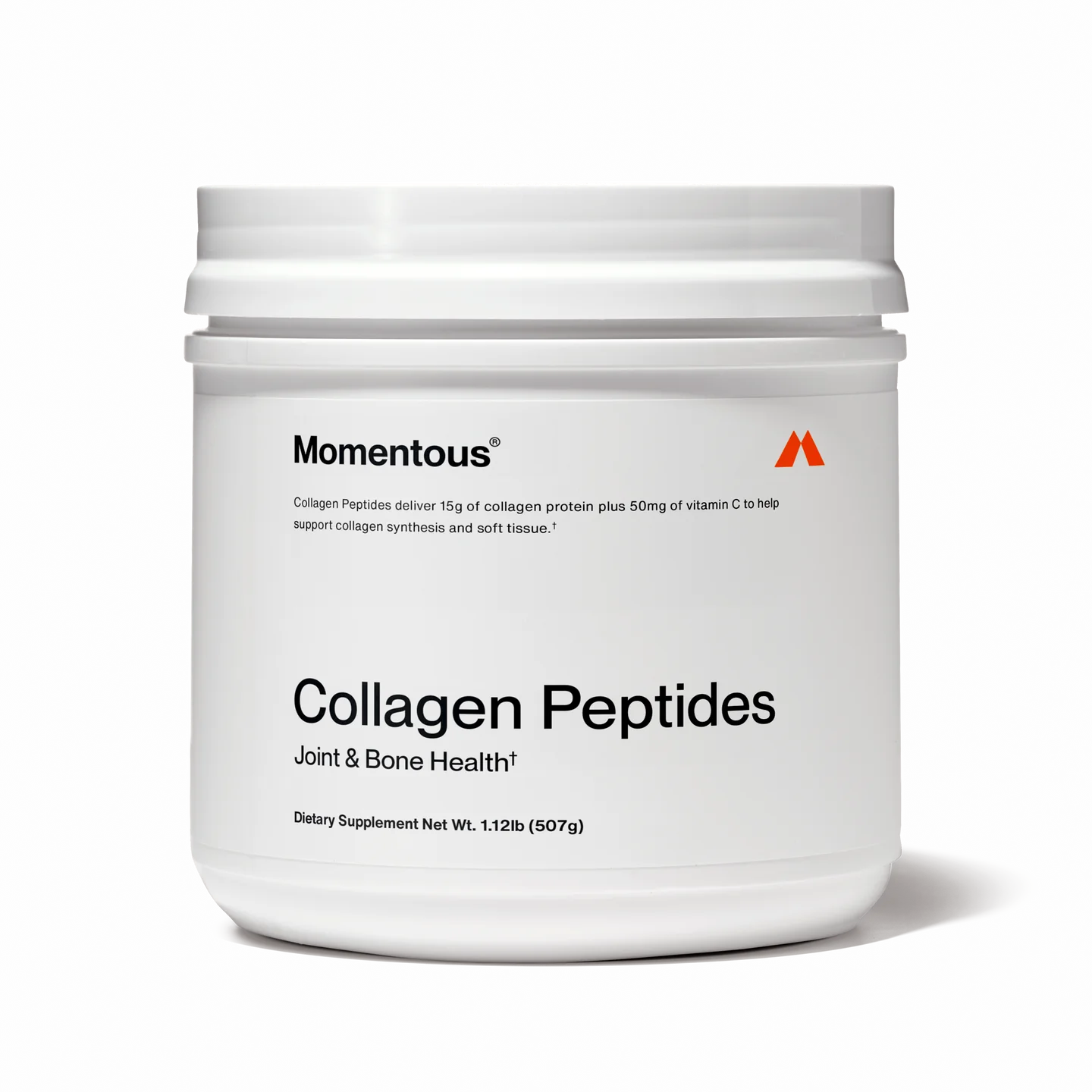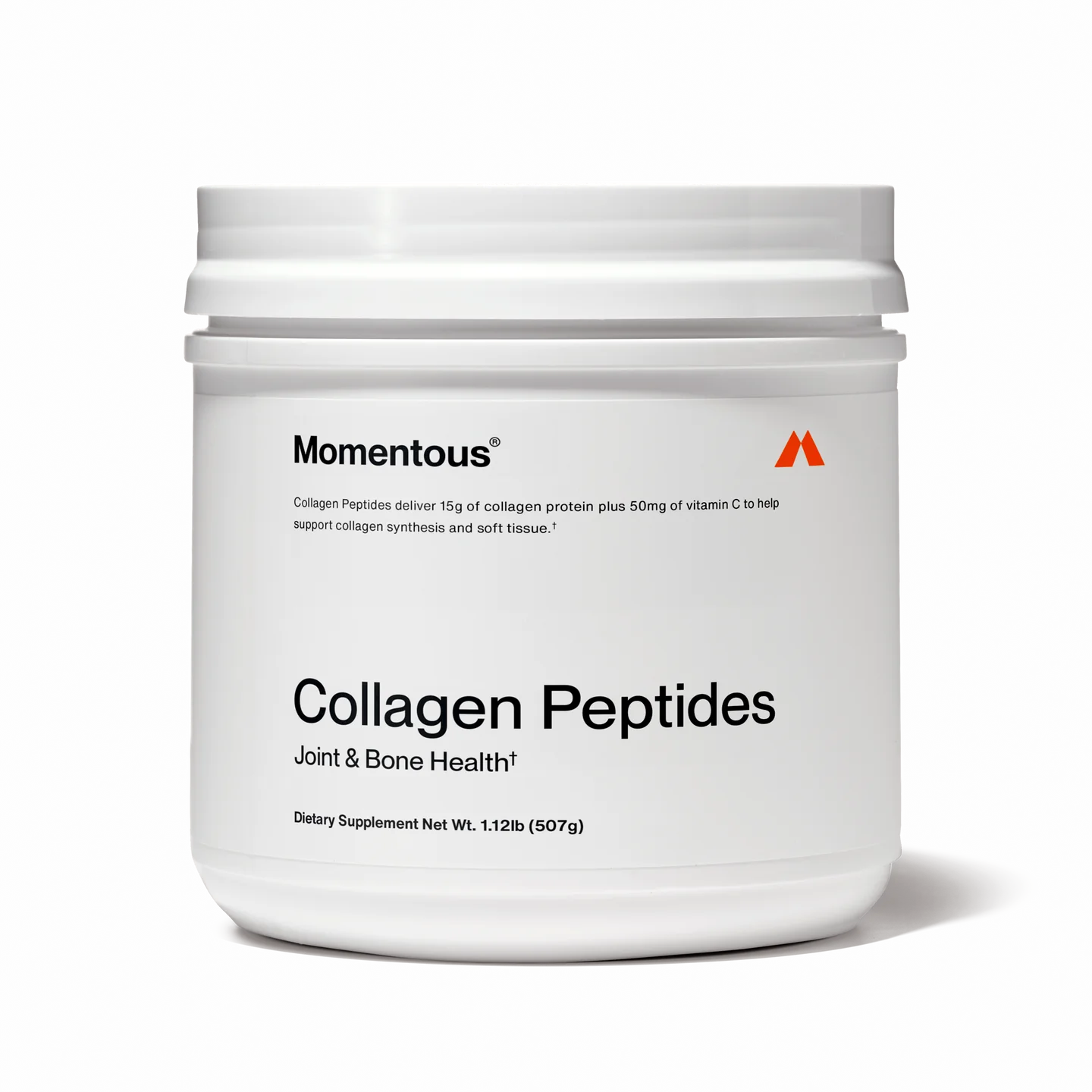Collagen for Skin Health & Aging - Andrew Huberman's Insights
We include products we think are useful for our readers. If you purchase through links on this page, we may earn a commission. Learn more
Is collagen the secret to youthful skin, or just another wellness trend?
Dr. Huberman initially approached the topic with skepticism. However, a deep dive into scientific literature revealed surprising support for collagen's potential benefits on skin elasticity and appearance.
Case for Ingested Collagen
Huberman expressed his initial surprise upon reviewing the scientific literature on ingested collagen for skin health. Traditionally, nutritional science suggests that when we consume proteins—be it from meat, fish, eggs, or plant sources—they are broken down into amino acids. These amino acids then serve as general building blocks throughout the body, not selectively targeting the tissue they originated from.
As Huberman explained, eating liver doesn't mean those specific amino acids are preferentially shuttled back to your own liver; they support overall bodily functions.
However, collagen, the protein crucial for skin elasticity and tensile strength, seems to present a fascinating exception. Huberman questioned how eating collagen (from sources like fish, animal hooves, or tendons) could selectively benefit the skin's own collagen, a notion that doesn't neatly align with established nutritional principles.
Yet, he highlighted compelling evidence, including meta-analyses, showing statistically significant improvements in skin collagen composition, appearance, and even wrinkle reduction in individuals supplementing with collagen powders.
One study he cited, "Exploring the Impact of Hydrolyzed Collagen Oral Supplementation on Skin Rejuvenation: A Systematic Review and Meta-analysis," found that supplementing with 5 to 15 grams of hydrolyzed collagen per day, particularly with vitamin C, can lead to visible improvements.
These include fewer wrinkles, some wrinkle reversal, less skin sagging, and a more youthful appearance with better elasticity.
The hypothesized mechanism, Huberman explained, is that ingested collagen is broken down into specific dipeptides and tripeptides. These smaller molecules circulate in the blood and are then utilized within the skin's own collagen matrix. This process can reportedly increase the chemotaxis (mobility) of fibroblasts—cells that contribute to skin tissue regeneration—and improve the elasticity of the outer skin barrier, making it appear tauter.
For those considering collagen peptide supplementation, Huberman shared that dermatologists he consulted often recommend aiming for 15 to 30 grams per day, a dosage higher than some studies but supported by others.
Augmenting this with 500-1000mg of vitamin C (often included in supplements) is also advised. These dermatologists also favor collagen protein supplementation for other potential benefits, like anti-inflammatory effects. Huberman also noted that supplementation isn't the only route; natural sources like bone broth are rich in collagen.
HUBERMAN SPONSOR
Momentous Collagen Peptides
• Supports soft tissue development
• Aids in muscle recovery
• Helps improve joint health and mobility
• Promotes healthy hair, skin, and nails
Dr. Teo Soleymani on Supplementation
While the promise of collagen supplementation is alluring, Dr. Teo Soleymani offers a more nuanced view. As an M.D. specializing in dermatology, skin cancer, and reconstructive surgery, he brings a clinical perspective to the discussion.
Dr. Soleymani emphasizes that collagen itself is composed of three non-essential amino acids: glycine, proline, and usually hydroxyproline. "Our bodies can synthesize these from sugars and fats," he notes. "Collagen supplementation is not an essential protein, unlike animal proteins, which provide all 20 amino acids, including the essential ones your body cannot synthesize."
Regarding studies suggesting benefits from collagen supplementation, Dr. Soleymani doesn't dismiss them entirely but urges caution. He points to potential confounding variables: "Were participants on restrictive diets or already protein-deficient?" Furthermore, many studies rely on subjective patient questionnaires, which can introduce bias.
Dr. Soleymani highlights an often-overlooked aspect of powdered supplements, including collagen: their effect on blood osmolality. "One of the reasons collagen works is your blood osmolality increases," he explains. "You draw a little bit more water into the vessels, which plumps up the appearance of the skin." This hydration effect provides an aesthetic benefit, making the skin appear fuller, but isn't necessarily a structural improvement to the skin's collagen matrix itself. He also notes this osmolality effect can have unintended consequences, recounting instances of young, healthy athletes developing high blood pressure from protein and creatine supplementation, which resolved upon discontinuation.
When asked directly if collagen supplements increase skin collagen or elastin density, Dr. Soleymani states the evidence is "equivocal." Some studies show slight increases, while others find no physical difference, raising questions about study duration and methodology.
Skincare Routines and Treatments
When it comes to topical skincare, Dr. Soleymani champions simplicity. "Many people overwhelm their skin with too many products," he observed. "A basic routine with quality ingredients often yields better results." The cornerstones of an effective regimen are:
A gentle cleanser
An appropriate moisturizer
Sunscreen – the non-negotiable element
He also debunked common myths, noting that "natural" isn't always superior, and high cost doesn't guarantee efficacy. Instead, look for evidence-backed ingredients. For aging concerns, Soleymani highlighted retinoids (related to the Vitamin A Huberman has discussed sourcing from food) as a gold standard for stimulating collagen production and cell turnover. Antioxidants like topical vitamin C help neutralize free radicals, and peptides can signal the skin to produce more collagen and elastin.
Nutrition for Optimal Skin Health
Huberman emphasized that beyond directly ingesting collagen, overall nutrition plays a crucial role in skin health.
This connection, he explained, is logical given the intimate relationship between our skin and immune system—a bi-directional link that explains why many autoimmune conditions manifest as skin issues like lichen planus or psoriasis.
When exploring nutrition for healthy skin, Huberman stated that the foundation aligns with general health recommendations: consuming the majority of foods from non-processed or minimally processed sources. These include fruits, vegetables, and, depending on dietary preferences, meats, eggs, fish, and chicken. Regardless of following a vegan, vegetarian, omnivore, or carnivore approach, the emphasis, according to Huberman, should be on minimally processed options while limiting highly processed foods.
He noted that anti-inflammatory diets show particular promise for skin health, citing Mediterranean-style or paleo-like approaches that emphasize whole, minimally processed foods.
The specific balance of macronutrients can vary based on personal preference, but the focus remains on nutrient-dense options.
Huberman then detailed specific nutrients deserving special attention for skin health:
Omega Fatty Acids: Sources like walnuts, flax, and fatty fish. For those not regularly consuming fatty fish, Huberman suggested liquid fish oil as a practical supplement.
Dark Leafy Greens: These provide essential nutrients, including folic acid, critical for DNA synthesis and skin cell repair.
Colorful Fruits and Vegetables: Particularly red and orange ones, deliver vital antioxidants and nutrients.
Vitamin A (from Food): Huberman highlighted Vitamin A's crucial role, explaining why retinoids like tretinoin are effective in dermatology. However, he cautioned against vitamin A supplementation due to the risk of overdose with this fat-soluble vitamin, advising instead to obtain it from food sources like oranges, carrots, and sweet potatoes.
Berries: Packed with antioxidants, though their cost can vary by season.
Garlic: Contains sulfur, a key component for collagen synthesis and repair.
Taurine: This amino acid, Huberman mentioned, also plays an important role in maintaining skin health.
What we eat directly impacts not only how our skin appears but also its function as a protective barrier.
He suggested that by focusing on whole foods, considering targeted approaches like collagen intake, and ensuring adequate skin-supporting nutrients, individuals can promote both the health and appearance of their largest organ.
Collagen and Bone Broth
Among targeted nutritional strategies, Huberman has discussed the role of collagen and bone broth, particularly for skin benefits. He pointed out that while the data isn't extensive, some studies show that individuals who regularly consume collagen protein can experience improvements in skin elasticity and appearance. These effects, though not dramatic, are statistically significant compared to control conditions.
Specifically, the amino acids contained in bone broth and collagen protein have been shown to support skin health when ingested at levels of about 15 grams per day over a period of two weeks or more. So, if the primary goal is improving skin health and appearance, collagen protein or bone broth would be a more targeted choice.
It's important to remember that these supplements contain calories, primarily from protein and sometimes fat (rarely from carbohydrates). Huberman advises checking packaging to understand the full nutritional profile of any collagen or bone broth product.
Wrapping Up
The journey to healthier skin isn't about a single magic bullet. Both Huberman's research and Dr. Soleymani's clinical experience underscore that true skin vitality stems from a holistic approach.
A foundation of nutrient-dense, minimally processed foods to provide the building blocks for collagen synthesis and overall health.
A simple, consistent, and evidence-backed topical skincare routine, focusing on cleansing, moisturizing, sun protection, and targeted treatments like retinoids.
Thoughtful consideration of supplements like collagen peptides, understanding the potential benefits and limitations, and perhaps incorporating them as one part of a broader strategy.
By integrating these perspectives, we can make more informed choices, prioritizing overall wellness as the truest path to vibrant, healthy skin.

HUBERMAN SPONSOR
Momentous Collagen Peptides
• Supports soft tissue development
• Aids in muscle recovery
• Helps improve joint health and mobility
• Promotes healthy hair, skin, and nails
FAQs on Collagen and Skin Health
How does sun exposure affect skin?
According to Huberman, dermatologists he consulted confirmed that sun exposure significantly disrupts the skin's structural components, including elastin and particularly collagen, which is a key factor in accelerating visible aging. Huberman further explained that UV wavelengths from the sun can cause mutations in the epidermal layers and negatively impact the composition of the dermal layers below, affecting proteins essential for skin health. While some sun exposure is considered healthy for overall wellbeing and hormone production, excessive exposure is clearly linked to accelerated skin aging.
How to protect from sun damage?
Huberman highlighted that physical barriers are the most straightforward and widely recommended method for protecting skin from sun damage. Items like shirts, hats, and jackets provide effective protection against both sunburn and premature aging. Dermatologists Huberman spoke with agreed that these methods effectively shield the skin without concerns about chemical interactions. He also mentioned the importance of being mindful of the UV index, especially during peak sun intensity hours (typically midday), to gauge the risk of sun damage.
How does popping pimples damage skin?
In his conversation with Dr. Soleymani, Huberman discussed why popping pimples can lead to lasting skin damage. Dr. Soleymani explained that a pimple represents an immune response in the skin. When you physically traumatize the skin by popping it, this triggers a much larger immune response than originally needed. The body releases enzymes (matrix metalloproteinases or MMPs) to remodel the area, but an excessive response means these enzymes can break down too much of the skin's structural components, like collagen and elastin. This over-degradation is what can lead to acne scarring. Dr. Soleymani’s primary advice, relayed by Huberman, is to avoid popping pimples altogether.
How do steroid treatments for acne impact skin?
Huberman and Dr. Soleymani discussed the use of corticosteroid treatments for acute acne issues. Dr. Soleymani explained that while topical or injectable steroids can quickly reduce inflammation for a short period, there are significant risks with their use. He cautioned against long-term application, as steroids can cause skin thinning and, ironically, may increase the risk of acne scarring. Huberman also relayed Dr. Soleymani's particular concern about steroid injections for acne, noting that improper administration can lead to permanent indentations (atrophic divots) in the skin due to localized tissue loss. These should only be administered by experienced dermatologists under specific circumstances.
What is the role of Omega-3s in skin health?
Omega-3 fatty acids can be beneficial for skin due to their anti-inflammatory properties, with fish sources generally being more effective than non-fish formats. However, Dr. Soleymani cautions that omega-3s can thin the blood, increasing the tendency to bruise, and he advises patients to discontinue them before surgical procedures.


